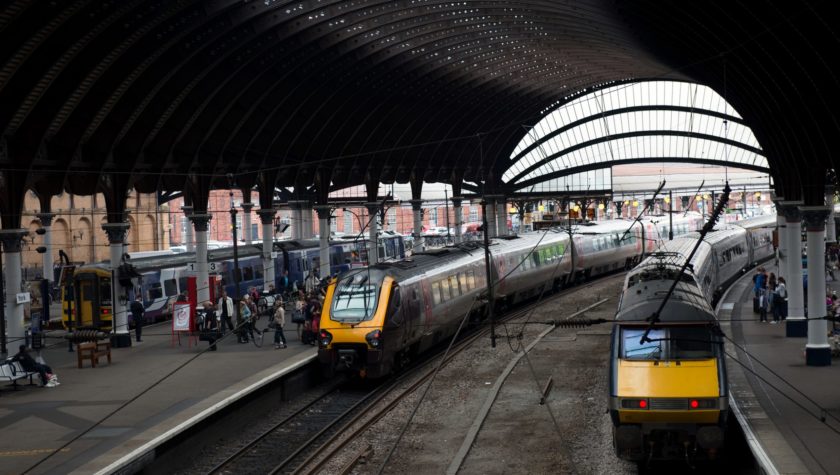The National Infrastructure Commission has today invited businesses, passengers, transport experts and regional leaders to share their ideas for transforming the rail landscape of the north alongside the East and West Midlands and help create a lasting legacy from the construction of High Speed 2 (HS2).
The Commission has launched a new call for evidence which kicks off its work on a Rail Needs Assessment covering large parts of England and stretching north to Scotland. This assessment will inform the government’s plans for an Integrated Rail Plan for the the Midlands and the north, by identifying the most effective scoping, phasing and sequencing of HS2 Phase 2b, Northern Powerhouse Rail, Midlands Rail Hub and other proposed rail investments.
Chair of the National Infrastructure Commission Sir John Armitt said:
“Clearly the nation faces an urgent and unprecedented challenge in the face of coronavirus, and quite rightly many local authorities and other organisations and individuals with a stake in the future of regional rail development will be focusing heavily on that at present.
“However, given the importance of these transport projects over the longer term, we were keen to begin background work now. We hope our call for evidence will enable a wide range of people to contribute to the first phase of our analysis, where they are able to do so.
“If they are done right, these rail projects have the potential to kickstart an integrated transport revolution in the the Midlands and the north. It is important that these significant investments create a lasting legacy which benefits commuters and other passengers across the country, and we look forward to receiving input from a wide range of people to help shape that future.”
The Commission’s independent assessment will consider how Phase 2b of HS2 – the lines running from Birmingham to Leeds via the East Midlands, and from Crewe to Manchester – will best be integrated with wider transport plans in the north and the Midlands, delivering benefits from those investments more quickly. It will also:
- consider a way forward on scoping, phasing and sequencing delivery of HS2 Phase 2b, Northern Powerhouse Rail, Midlands Rail Hub and other proposed rail investments
- consider how best to deliver rail connectivity with Scotland.
The call for evidence will help inform the evidence base, analysis and stakeholder engagement undertaken by the Commission during this exercise. The call for evidence closes on 29 May 2020 [note: this has now closed]. The Commission will keep its approach to gathering evidence under review, recognising the many challenges that stakeholders are currently facing.
Notes for editors
- On 11 February 2020, the government published the independent Oakervee review of the HS2 rail project and announced plans to proceed with HS2, with construction of Phase 1 from London to the West Midlands set to begin in April.
- It simultaneously announced its intention to create an Integrated Rail Plan for the north and the Midlands and requested a study from the Commission to inform that plan.
- Phases 1 and 2a of HS2 – the construction of the HS2 line from London to Birmingham, and then on to Crewe – lie outside the scope of the assessment.
- A separate exercise, led by the Infrastructure and Projects Authority, is seeking to learn lessons from Phase 1 of HS2 to drive down costs in subsequent phases.




